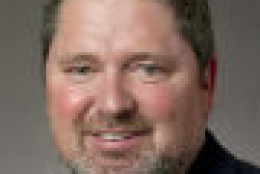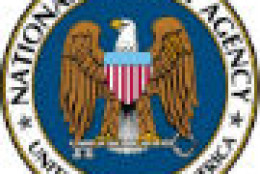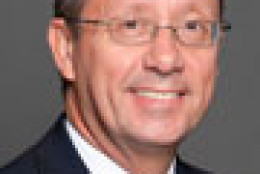Cybersecurity
-
Executive Editor Jason Miller looks at the news and information you may have missed or that slipped through the cracks at conferences, hearings and the like.
August 08, 2014 -
Back in 2012, then-defense secretary Leon Panetta warned of a catastrophic cyber attack that could cripple an entire nation or its military. He called it a cyber Pearl Harbor. It was emblematic of a lot of the conventional wisdom that's built up around cyber warfare over the past decade or so. In a recent op-ed, Jay Healey challenges some of that conventional wisdom. Healy is director of Cyber Statecraft Initiative at the Atlantic Council. On In Depth with guest host Jared Serbu, he argued not only is deterrence possible in cyberspace, it's been a reality for a couple decades now.
August 08, 2014 -
Quite a number of insider threat incidents have happened because basic security principles were absent, overlooked or ignored. Why Jim Henderson says it's time we get back to the basics.
August 05, 2014 -
With 50 billion devices connected to the Internet, the rules of cybersecurity are changing. Agencies and more companies are on to the importance of cybersecurity, but they might be watching out for high-profile threats rather than more common and stealthy problems that can do lots of damage. That's what Cisco has found and will release in a report. Levi Gundert is the technical lead for Cisco's Threat Research, Analysis and Communications, or TRAC. He spoke with Tom Temin and Emily Kopp on the Federal Drive.
August 04, 2014 -
Federal websites will have to become more secure if Congress gets its way. Under a bill recently passed by the House, any new federal websites that collect personally identifiable information will need to be deemed secure by the agency's chief information officer before they go live to the public.
August 04, 2014 -
Federal employees are a prime target for hackers and other bad guys when on vacation. Learn 12 tips for keeping you and your federal-issued laptop safe while out of the office this summer.
August 01, 2014 -
Federal employees are prime targets for hackers. If not properly secured, the computers and mobile devices they carry could open up their agency's network to malicious attacks. Devices can be especially vulnerable when you're on vacation and it's easy to let your guard down. Jerry Irvine is the chief information officer and a partner of Prescient Solutions. He told Tom Temin and Emily Kopp on the Federal Drive what feds should be aware of when they're traveling.
July 31, 2014 -
This fall, five more schools will offer an intensive science, technology, engineering and math (STEM) education track to students who are serious about federal cybersecurity careers. These Centers of Academic Excellence are overseen jointly by the National Security Agency and the Homeland Security Department. Schools have to pass a meticulous screening process to qualify for the program. Steve LaFountain is dean of the NSA's College of Cyber. He joined Tom Temin and Emily Kopp on the Federal Drive to discuss the new move.
July 31, 2014 -
The National Association of Corporate Directors' (NACD) Handbook on Cyber-Risk Oversight, introduced Tuesday at the National Press Club in Washington, outlines five key principles that aim to move forward the collaborative cybersecurity effort.
July 29, 2014 -
The cyber attacks on small federal agencies demonstrate the cyber domain is an ecosystem, and the federal government is one of many different cyber cultures. One expert says a map of the different cultures can help agencies prevent cyber attacks. Ben Fitzgerald is senior fellow and director of the Technology and National Security Program at the Center for a New American Security. He explained that and other cybersecurity strategies on In Depth with Francis Rose.
July 28, 2014 -
Chief legal counselor to NSA says intelligence disclosures may have set back efforts to improve nation's cybersecurity posture because of increasing unease about public-private cooperation, and that it's time to reexamine the digital privacy trust relationship between government and the public.
July 28, 2014 -
House Oversight and Government Reform Committee members approved the Federal Records Accountability Act, which mandates preservation of digital correspondence. The committee also passed the Searching for and Cutting Regulations that are Unnecessarily Burdensome Act, which would establish a presidential committee to find and review outdated, burdensome, costly or obsolete regulations.
July 25, 2014 -
The cyber attacks on the Government Printing Office and Government Accountability Office are the latest in a trend of heavier attacks on small agencies. Darren Van Booven, the chief information security officer and assistant chief administrative officer for the House of Representatives, tells Federal News Radio attackers are more sophisticated and they're starting to target small agencies. Rob Zitz is senior vice president and chief systems architect at Leidos, formerly part of SAIC. He's my guest for Industry Chatter today. He's my guest for Industry Chatter today. He says better cybersecurity starts with three letters: CDM.
July 24, 2014 -
The National Academy of Public Administration says the Social Security Administration is not ready for the challenges of the future. NAPA says shrinking budgets, retiring workers and rapidly changing technology are all issues that need to be addressed in the next 15 years.
July 23, 2014 -
Larry Zelvin is stepping down as the director of DHS's National Cyber and Communications Integration Center (NCIC) next month after almost 30 years of government service.
July 22, 2014









